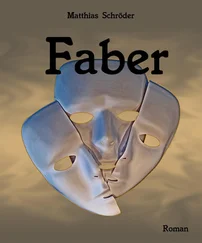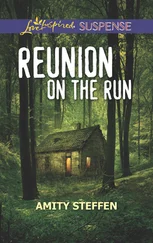“Stop it!” I cried. “Stop kicking me!”
I tugged on her purple pants and the sweatshirt from the Swanton Walmart. Her sodden underwear soaked through immediately. I attempted to towel-dry her hair, but she covered her head with her hands, as if she was being gratuitously attacked. We were enemies now. And there, cold and wet on the bed she wanted to cling to, the grave injustice of her position became evident to her, which was that not only could she not have her bed, but neither could she have the comfort she wanted most in the world. Raising her chin to the ceiling, bringing her knees to her chest, she gave a long, chilling cry for it.
“ MOMMY! ”
“Shhh, Meadow. Shhhhhh.”
“ MOMMY! ” she hollered again. “ MOMMY! MOMMY! ”
She kicked her legs out straight, her nostrils as wide as marbles. She stayed stiff like that, back arched in apoplexy, her eyes open and staring. I heard the literal rattle of her spent breath. She fell silent.
Out the door, the dead thud of the bolt behind me, down the stairs, two flights only, where the drowsy concierge turned his face from the television, a solicitous smile lingering upon it even after he saw my daughter limp in my arms, uncomprehending. Meadow’s wet head staining my shirtfront. Her eyes were open but vacant. “Talk to me!” I said. She wouldn’t talk to me.
“Where’s the nearest hospital?”
The man stood, a sandwich falling from his lap.
“Close,” he said. “Mass General. You need a taxi?”
“Please. Please. Help me.”
No taxis waited outside. The Best Western fronted the wharf between the expressway and the Charlestown Bridge. A million cars passing above us on concrete stanchions on either side, but not a single one on our deserted street right below.
“Call an ambulance,” I said. “Call a taxi. Anything.”
“Right away. But—”
“But what?”
“You could run. Might be faster. Look.”
I looked toward the illuminated tip of the building toward which he pointed. The building seemed very close, but even as I began to run, I understood that it looked far closer than it really was.
I ran out of the isolated underpass and onto another street with little traffic, all of it slick with midnight moisture, upon which the traffic lights slid and blurred my depth perception. I stumbled. A horn blared. Meadow was passive in my arms. Her weight felt neutral, inanimate. It was as if she did not care if we fell, or if we were hit, and she did not care if we made it to the hospital or not. It was as if she did not really believe in the hospital anyway. And I wondered — in that split frame with which a man lucidly witnesses his own downfall — if it was possible that she did not believe in me anymore either. She suspected but could not yet confirm some future in which I was gone, banished. Discredited. Locked away. And she — adult Meadow — living in a garden apartment, years hence, unmarried perhaps, childless, would say to herself, and I gave years of my life over to him ? To reckoning with him ? Or, aging herself, she might even laugh with the sudden realization that a certain amount of time had indeed been shaved off the back end of her life — a year or two, maybe more — years she had donated to her father when she was a child, by dint of her love for him and her inexhaustible mercy, in order to sustain him, before she fully understood the terms of the transfer. This form of self-cannibalizing that children do, well, it’s one reason I ran. I mean, ran from Dorchester.
The headlights were blinding. The squad car had already passed us and made a U-turn and was driving back toward us so damningly I could barely walk forward anymore. With Meadow in my arms I could not shield my eyes. Meadow pressed her face against my chest. A door opened and a figure was coming toward us brandishing a smaller light.
“You two all right?” the policeman asked, sweeping my face.
“We’ll be fine. Please. I can’t see.”
“You don’t look fine.”
“We need to get to the hospital.”
He peered into Meadow’s face with his flashlight. “Is she conscious?”
“Yes. We’re just—” I tried to step past him, toward the glowing building, which seemed to flare, to signal to us. “Please! Let us go.”
The man looked surprised. Why wouldn’t he let us go? Didn’t I understand he was here to help? The clean-shaven skin over his ears jumped with his pulse.
“I’ll do you one better,” he said. “Get on in. I’ll drive you.”
“No, thank you.”
“Come on now. You’d better, sir. She doesn’t look good.”
“It’s her asthma. It’s just asthma. But it won’t stop.”
We sat in the backseat. Meadow seemed momentarily revived by the police car, curling her fingers around the black grate.
“Heading southbound on Staniford,” the cop intoned to his CB radio. “Heading to Mass General with a female minor, seven or eight years of age—”
“We don’t have her inhaler with us,” I said. “She can’t breathe.”
“Subject might need oxygenation.”
Abruptly, Meadow lay down in my lap. The action terrified me, it was so final. She murmured something.
I bent down to hear. “What’d you say, baby? What’d you say?”
“You’re my home,” she said, distinctly.
“Oh. Oh my sweetheart. What do you mean?”
“You’re where I live, you and Mommy.”
“Oh. All right. Don’t try to talk.”
She started to cry. A high, weak scratch of a cry, no air in it.
“Am I going to die?”
“Please, Meadow. I’m sorry!”
“Am I going to, Daddy?”
“Don’t say that.”
Her eyes closed.
“Her eyes closed,” I said to the policeman.
“Almost there,” he said.
“She’s going to die! Drive faster!”
“We’re almost there, sir.” He swiped his CB radio off the dash. “Twenty-two to dispatch. Arriving to Blossom Street entrance of Mass General. That’s Blossom Street…”
They had to pry my hands from her shoulders. I was shaking her too hard. She was moving along very quickly now in the hallway on her back. They tried to lose me. I wouldn’t let them, though. They didn’t understand. There was no way I was going to let her die. I had ahold of the corner of the gurney. I was trying to help them push but I was also falling down, falling into nothingness. The policeman was jogging along beside me. Everybody was running.
“No way am I going to let her out of my sight,” I said to the policeman, who now seemed, since he’d signed on for the next chapter, like someone I could talk to.
“Nobody’s going to take her from you, sir,” he said.
“They’ll have to kill me first.”
“Nobody’s going to do anything but help her. Relax.”
“Come this way,” one of the nurses said, the one holding the mask over Meadow’s face, as she tacked sharply into a bright room, and my child was rolled into the astonishing light.

A hospital never grows dark. Never completely. The clock hands move; night settles in. Trays are brought and cleared through the not-dark, and the not-silence prevails — the blips, the squeaks, the billows of assisted breathing. In pediatrics, the rituals of bedtime follow snack time. A child pauses outside the door in footed pajamas, thoughtfully brushing his teeth and staring… Shuddering, I lowered my head into my hands. If I stayed quiet, if I stayed very still… We were sharing a room with a boy whom no one had yet visited. He slept under his tucked sheet, his dark, perfected face framed by the pillow as if by frilled wax paper. He seemed so totally alone. But I couldn’t watch over him. If some sylph were to come floating to the door, I would have said, Take him . Take him !
Читать дальше













